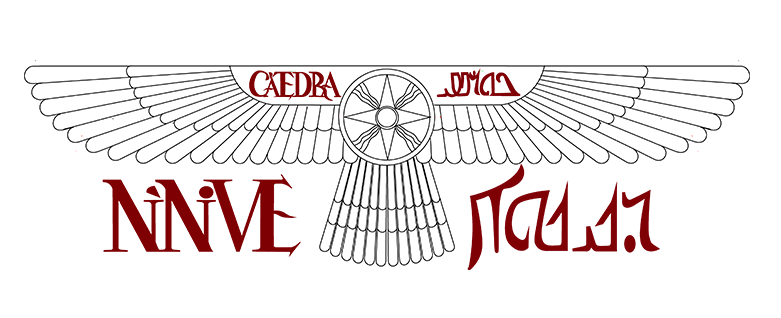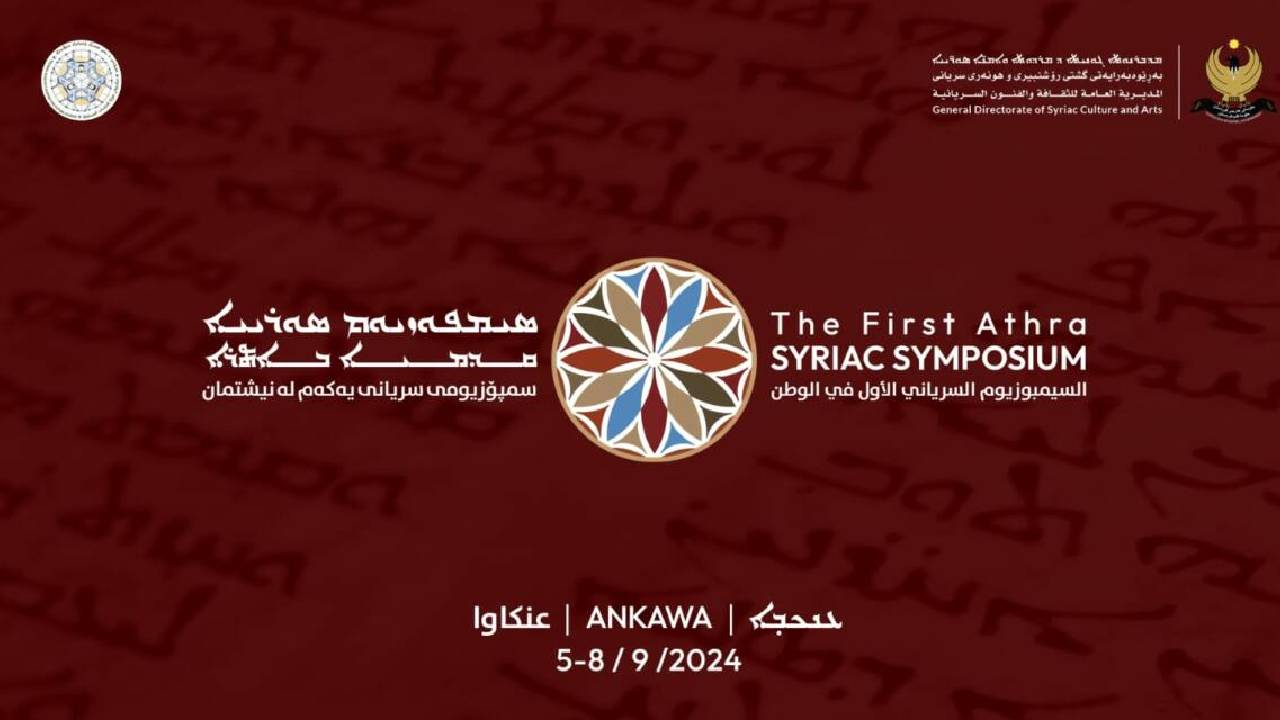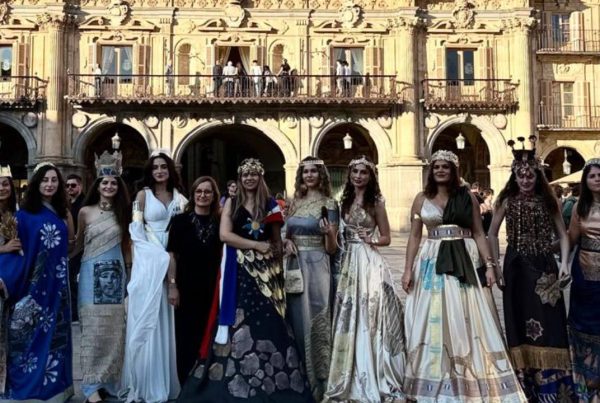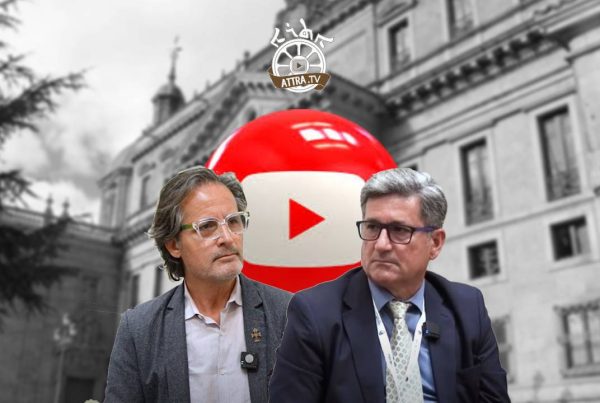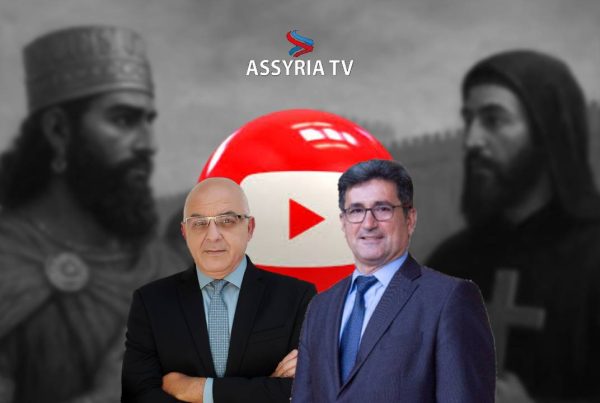From 5–7 September 2024, Erbil and Ankawa hosted the First Athra Syriac Symposium under the theme “Syriac as a Living Culture, Despite Challenges to its Survival.”
Assyrian Heritage at the Heart of Syriac Studies – Prof. Efrem Yildiz speaks in Erbil
From 5–7 September 2024, Erbil and Ankawa hosted the First Athra Syriac Symposium under the theme “Syriac as a Living Culture, Despite Challenges to its Survival.” Organized by the General Directorate of Syriac Culture and Arts in partnership with the Yonan Hozaya Centre for Research and Future Studies, the symposium opened at the Martyr Saad Abdullah Convention Centre and continued at the Catholic University in Erbil, with the closing sessions at the Patriarch Joseph VI Audo Conference Hall in the Antonian Monastery.
Representing the Nineveh Academic Chair, Prof. Dr. Efrem Yildiz (University of Salamanca) delivered a lecture titled “Assyrian Heritage in Syriac Literature.” His talk traced the continuity of Assyrian historical memory and cultural expression within Syriac textual traditions, underscoring how literary evidence illuminates Assyrian identity across centuries and why systematic academic work – curricula, grammars, digitization, and research chairs – is essential to safeguarding that legacy today.
The symposium’s proceedings featured papers in Syriac, Arabic, and English, and concluded with concrete recommendations—among them: re-activating the Syriac Language Authority within the Iraqi Scientific Academy, establishing a Syriac Academy in the Kurdistan Region, and expanding institutional support for Syriac studies and cultural production. These steps align closely with NAC’s mission to train new specialists, strengthen modern Assyrian (Sureth) instruction, and advance original research on Assyrian language, literature, and history.
Nineveh Academic Chair congratulates the organizers and participants of the First Athra Syriac Symposium and thanks the hosts in Athur/Nineveh for creating a forum in the homeland where scholarship, community, and policy can meet. We look forward to continued collaboration that turns these recommendations into lasting infrastructure for our language and culture.
